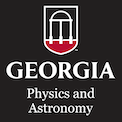Folding and aggregation of molecules, as well as the adsorption of soft organic matter to solid inorganic substrates belong to the most interesting challenges in studies of structure formation and function of complex macromolecules. The substantially grown interest in the understanding of basic physical mechanisms underlying these processes is caused by their impact in a broad field that ranges from the molecular origin of the loss of biological functionality as, for example, in Alzheimer's disease, to the development of nanotechnological applications such as biosensors. A key factor that noticeably contributed to the accelerated development of the field has been the rapid increase of available computational resources and with it the development of efficient simulation strategies. In this talk, I am going to review different modeling approaches that aim at a theoretical understanding of properties of molecular structures. This includes mesoscopic and microscopic models for the folding of polymers and proteins, for aggregation, and for technologically particularly interesting hybrid systems of soft and solid condensed matter.


